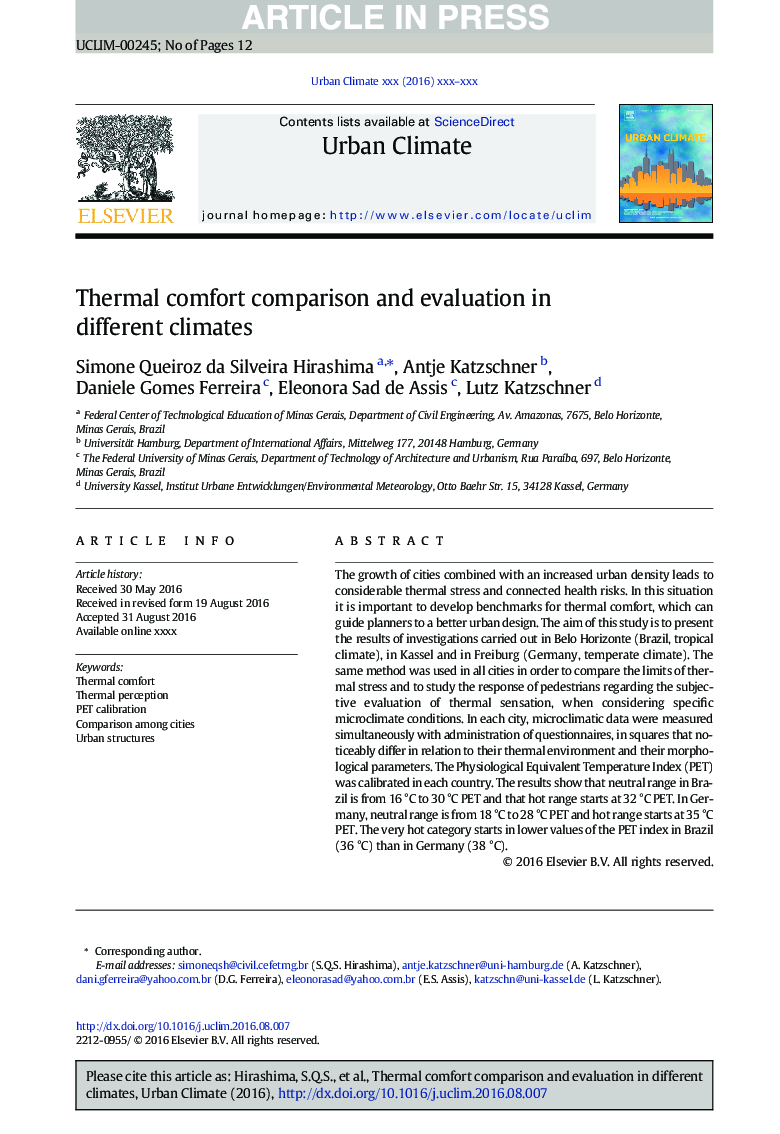| Article ID | Journal | Published Year | Pages | File Type |
|---|---|---|---|---|
| 6576967 | Urban Climate | 2018 | 12 Pages |
Abstract
The growth of cities combined with an increased urban density leads to considerable thermal stress and connected health risks. In this situation it is important to develop benchmarks for thermal comfort, which can guide planners to a better urban design. The aim of this study is to present the results of investigations carried out in Belo Horizonte (Brazil, tropical climate), in Kassel and in Freiburg (Germany, temperate climate). The same method was used in all cities in order to compare the limits of thermal stress and to study the response of pedestrians regarding the subjective evaluation of thermal sensation, when considering specific microclimate conditions. In each city, microclimatic data were measured simultaneously with administration of questionnaires, in squares that noticeably differ in relation to their thermal environment and their morphological parameters. The Physiological Equivalent Temperature Index (PET) was calibrated in each country. The results show that neutral range in Brazil is from 16 °C to 30 °C PET and that hot range starts at 32 °C PET. In Germany, neutral range is from 18 °C to 28 °C PET and hot range starts at 35 °C PET. The very hot category starts in lower values of the PET index in Brazil (36 °C) than in Germany (38 °C).
Keywords
Related Topics
Physical Sciences and Engineering
Earth and Planetary Sciences
Earth and Planetary Sciences (General)
Authors
Simone Queiroz da Silveira Hirashima, Antje Katzschner, Daniele Gomes Ferreira, Eleonora Sad de Assis, Lutz Katzschner,
